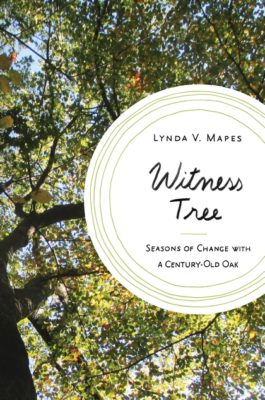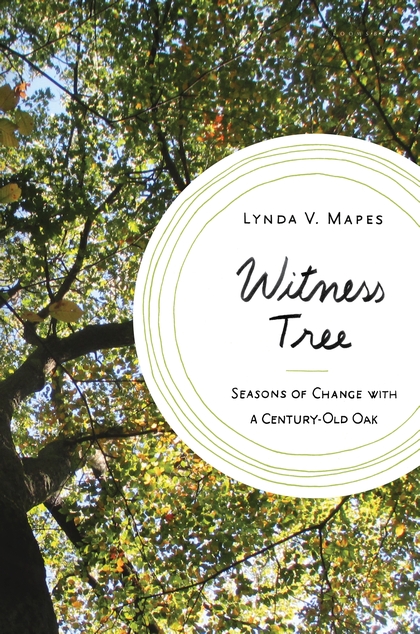If humanity doesn’t immediately reduce our emissions of carbon dioxide, methane, and other climate-warming air pollutants, global temperatures could rise by as much as 11.5 degrees Fahrenheit by the end of the century, according to the Intergovernmental Panel on Climate Change’s most pessimistic forecasts.
For some reason, this knowledge isn’t as frightening to us as the prospect of a Cold War-style apocalyptic thermonuclear exchange — in the same way that the inevitability of lung cancer from smoking tobacco isn’t as frightening as the idea that, hypothetically, electronic cigarettes might have a one in 100,000 chance of blowing off their vaper’s head. Our risk assessment faculties aren’t adapted to gradual but certain peril the way they ought to be. So here we are.

In that context comes Lynda V. Mapes’ book Witness Tree. The Seattle Times reporter spent a year studying a particular hundred-odd-year-old red oak in north-central Massachusetts while researching its surroundings, using it as a lens to view the effects of climate change and ecology in general.
Mapes’ investigation is phenomenal and wide-ranging, all the more so because it fits it into a slim two hundred and ten pages of narrative. Within that brisk, summer afternoon-length reading, Mapes imparts everything from the history of phenology, the way species respond to seasons, to how photosynthesis functions within plan cells to nineteenth century New England farming practices — and more still.
That engrossing eclecticism is itself enough reason to recommend this book. You’re sure to learn something new, along with the underlying detail behind some bit of information or trivia you’d already heard, and feel cleverer when the topic of climate damage comes up at the next activist gathering you’re at.
But, as a book, Witness Tree ends up being less than the sum of its parts.
If we’re to judge it on its own terms — what Mapes explicitly set out to do — we have to consider it to have fallen short of its mark. Mapes is a newspaper reporter, and it shows in her writing. Her prose is clear, concise, well-sourced with solid quotes, and engaging throughout. This is to her benefit, but the book suffers from that style, reading more as a series of magazine pieces than a single, coherent work.
The deeper you go, the more the central premise of a specific tree that bears witness to climate science falls away.
It ends up being a book about Harvard Forest, the team of people working there, and the different strategies we use to investigate nature, from boring for tree rings to live-streaming leaf growth to aerial drone footage. And that’s a fine subject. But Mapes set expectations as having a big oak as its own character, ‘a frame of study for contemplation’, and through it, a fresh way to tell the story of climate change that might be more persuasive than what’s come before.
So when that character is increasingly ignored and fades into the background, Mapes ends up telling a story that essentially is an artful consilience, weaving together many different scientific disciplines that contribute to our understanding of climate damage, but losing a frame that connects personally.
This is unlikely to be more persuasive than An Inconvenient Truth or a comprehensive United Nations report on what we can expect over the next one hundred years. That’s not a fair expectation, though, and considering tribalism in contemporary American society, may not even be possible.
According to a Pew survey taken last year, only forty-eight percent of Americans believe the Earth is warming mostly due to human activity, including less than a third of the party in charge of all three branches of the federal government.
Worse, in a 2015 Yale poll, only thirty-six percent of Americans of all political persuasions believe climate damage will affect them personally. Which is good motivation to start looking at ways it already is personally affecting us.
Witness Tree is the finest sort of well-sourced consilience, and if you’re already in the science-acknowledging tribe, it may inspire you to get out a notebook (or spreadsheet) and start performing some amateur phenology on your own backyard and hiking paths.

